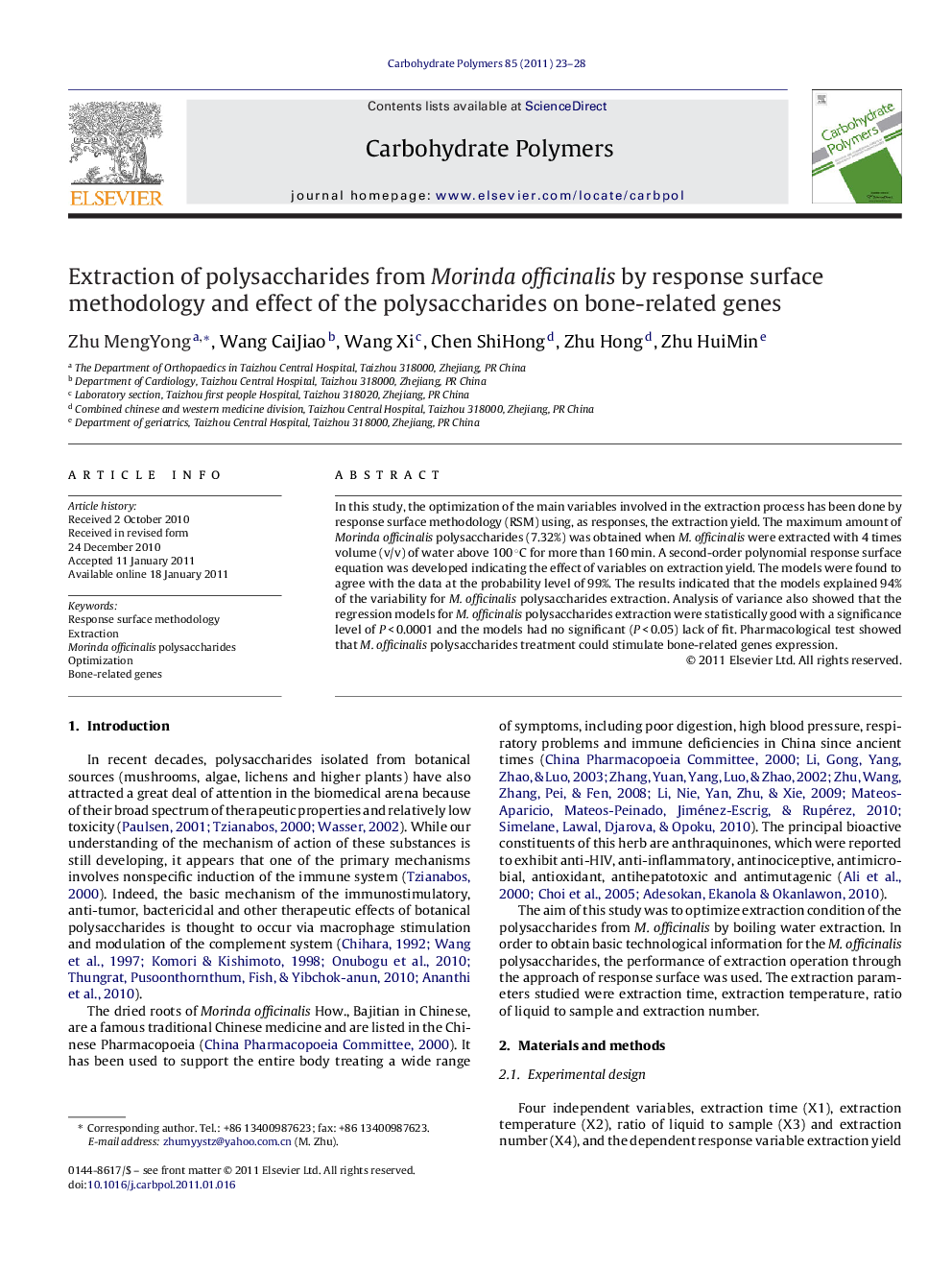| Article ID | Journal | Published Year | Pages | File Type |
|---|---|---|---|---|
| 1384164 | Carbohydrate Polymers | 2011 | 6 Pages |
In this study, the optimization of the main variables involved in the extraction process has been done by response surface methodology (RSM) using, as responses, the extraction yield. The maximum amount of Morinda officinalis polysaccharides (7.32%) was obtained when M. officinalis were extracted with 4 times volume (v/v) of water above 100 °C for more than 160 min. A second-order polynomial response surface equation was developed indicating the effect of variables on extraction yield. The models were found to agree with the data at the probability level of 99%. The results indicated that the models explained 94% of the variability for M. officinalis polysaccharides extraction. Analysis of variance also showed that the regression models for M. officinalis polysaccharides extraction were statistically good with a significance level of P < 0.0001 and the models had no significant (P < 0.05) lack of fit. Pharmacological test showed that M. officinalis polysaccharides treatment could stimulate bone-related genes expression.
